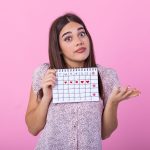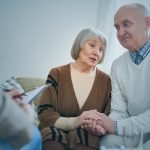
Top 10 safety tips for music festivals
Going to a music festival can be an amazing experience. Whether it’s one day or a weekend-long event, these 10 tips can help you stay safe and healthy while still having a blast.
1. Party safe
You can make the most of your music festival experience by partying safely. Keep tabs on how much alcohol you’re drinking and avoid binge drinking. Remember to eat meals and drink plenty of water.
While illicit drugs may seem fun, they are also dangerous as you don’t know what’s in them or how they’ll affect you. Don’t mix alcohol and other drugs — you can’t know how they will react with each other and if they will make you sick. If you or someone else had a bad reaction to drugs, you won’t get in trouble for telling a medical professional what they’ve taken.
2. Stay cool and hydrated
Partying and watching your favourite bands play under the blazing sun can knock you about. Avoid dehydration by drinking plenty of water, especially if you’re drinking alcohol.
Stay cool by wearing a hat, sunscreen and sunglasses, and hanging out in shaded areas when you can.
3. Chill out and take a break
Heatstroke can happen easily, especially when you’re under the hot sun. Drinking alcohol and taking drugs can also lead to heatstroke because they make it hard for your body to cool itself down.
Cool down by drinking lots of water and take some time out. See if there are some chill out spaces where you can have a break for a while.
4. Practise safe sex
If you hook up with someone, practise safe sex so you don’t catch an STI. The best way to look after your sexual health is to use condoms and take them with you, so you’re prepared.
If you have sex, remember that everyone involved needs to definitely agree. Saying ‘maybe’ or ‘I think so’ is not good enough.
And doing some things, like oral sex, doesn’t mean you have to do everything.
You shouldn’t feel pressured into doing something you don’t want to.
5. Bring your medication
Take any medicine you need with you. Depending on your health and needs, consider taking an asthma inhaler, antihistamines, antidepressants and antiseptic.
Festivals will have first aid facilities, but usually won’t have a medical service. If you do need to see a GP or pharmacist, use the healthdirect app to locate one.
If you’re going to drink, check your meds for how they may react with alcohol.
6. Learn your way around
When you first get to the festival, check out what’s where (and not just which bands are playing and when). Festivals can be confusing places, so it’s important to know where the toilets, first aid, food stalls, bar, camping and chill-out zones are. Most festivals provide a map, or you could just walk around and explore!
7. Protect your hearing
While thumping drum beats, blaring guitar riffs and screeching vocals are part of the festival experience, they also hammer your hearing. Loud noise and music festivals go hand in hand, so be prepared and protect your ears with earplugs.
And if you can’t cope with the loud noise, move away from the speakers for a while.
8. Have a buddy system
Consider using a ‘buddy system’, where you look out for a friend and they look out for you. Organise a time and meeting place with your buddy in case you get lost or want to go off to see different things.
Don’t always rely on your phone, as your battery may go flat or the network may become overloaded.
9. Watch your drinks
Drink spiking is when a person deliberately adds alcohol or another drug like GHB or Rohypnol to your drink without you knowing. This can make you drunk or feel ‘out of it’ unexpectedly.
Don’t share with or accept drinks from people you don’t know or trust. Better still, buy and pour your own drinks.
10. Download online tools
Access to good information can be hard to get when you’re not at home.
The Reachout.com toolbox provides a range of useful tools and apps that may be helpful when you’re out and about. If you have an urgent question about alcohol and other drugs, call the National Alcohol and Other Drug hotline: 1800 250 015.
Check out the healthdirect app before you leave home. It can help you find a local health service, check out any symptoms you may have and provide accurate location information to emergency services if something goes terribly wrong.



